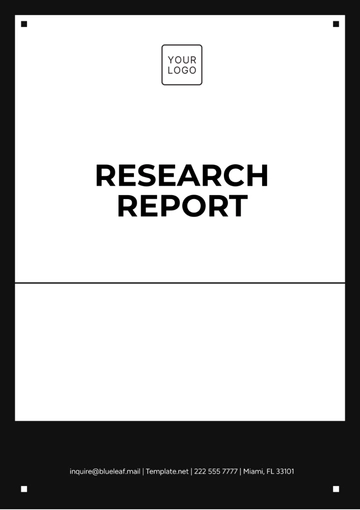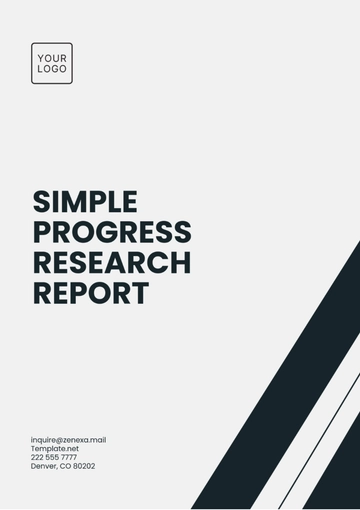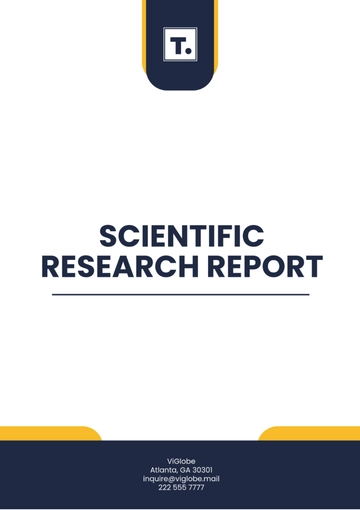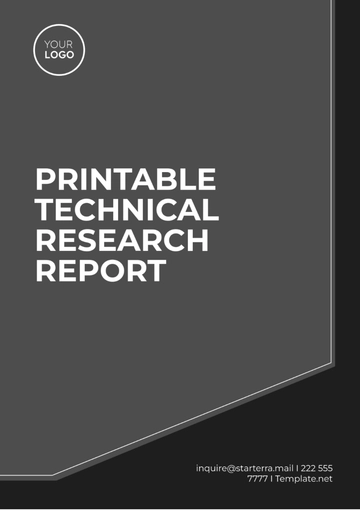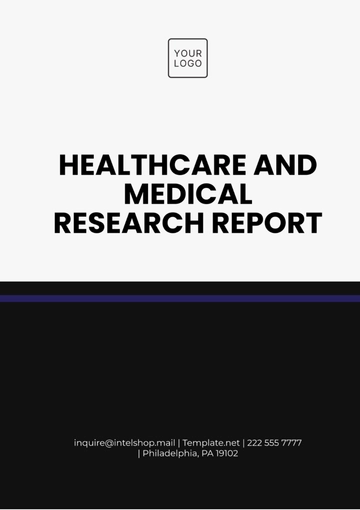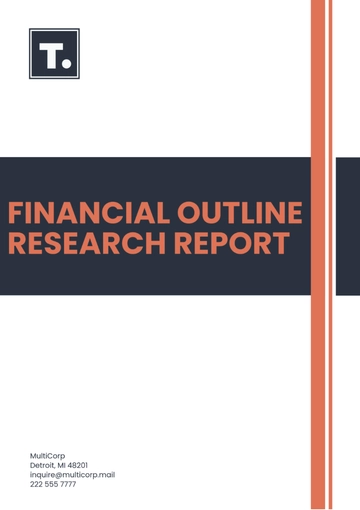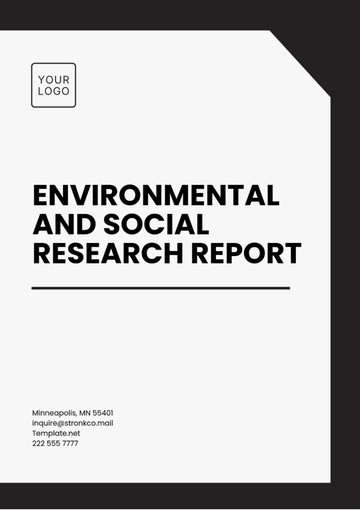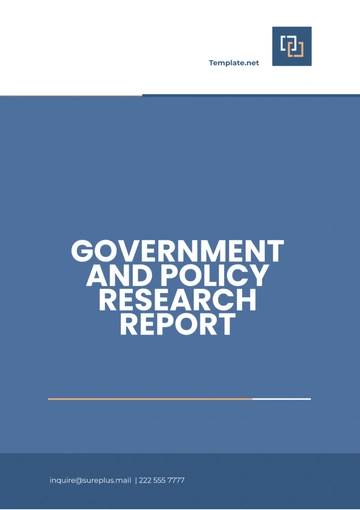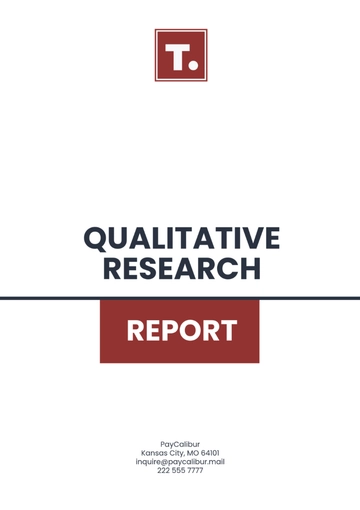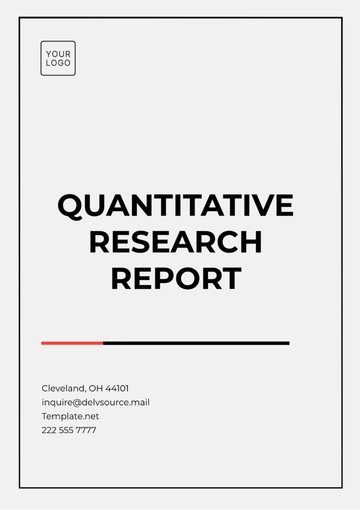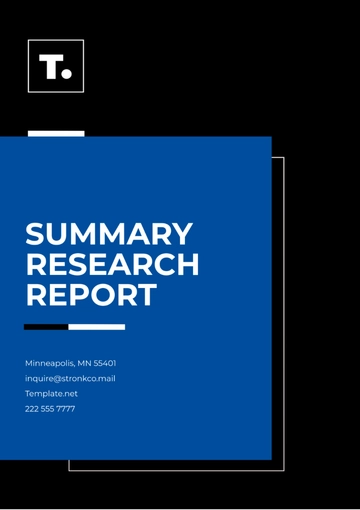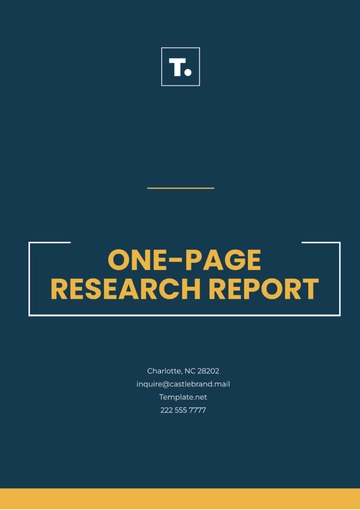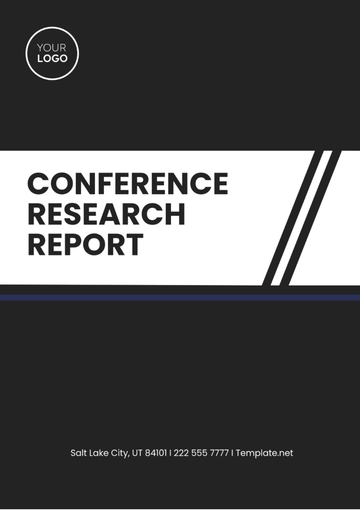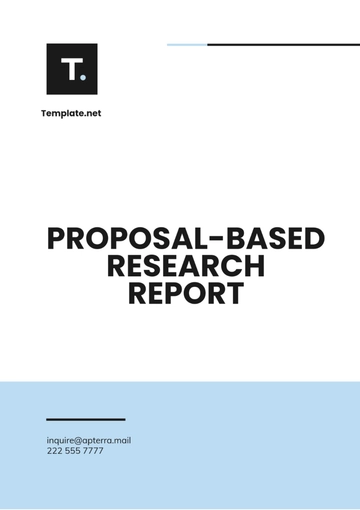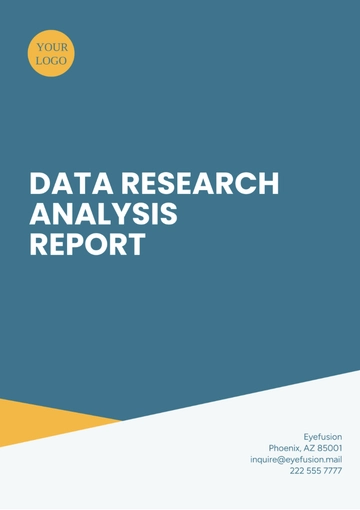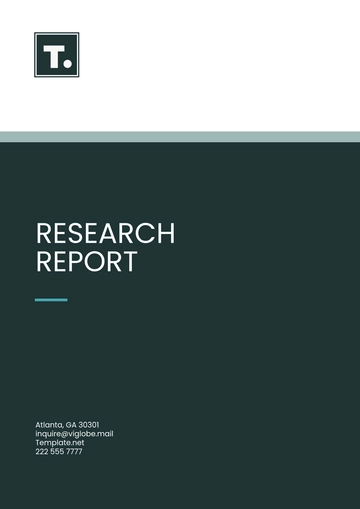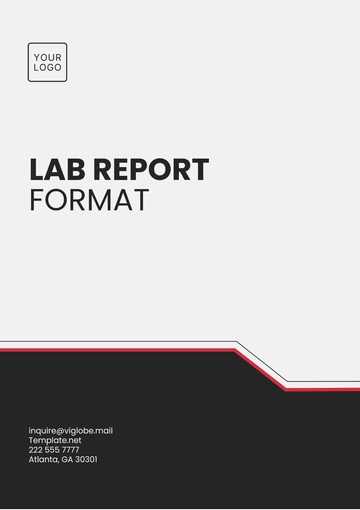Free Medical Office Research Report
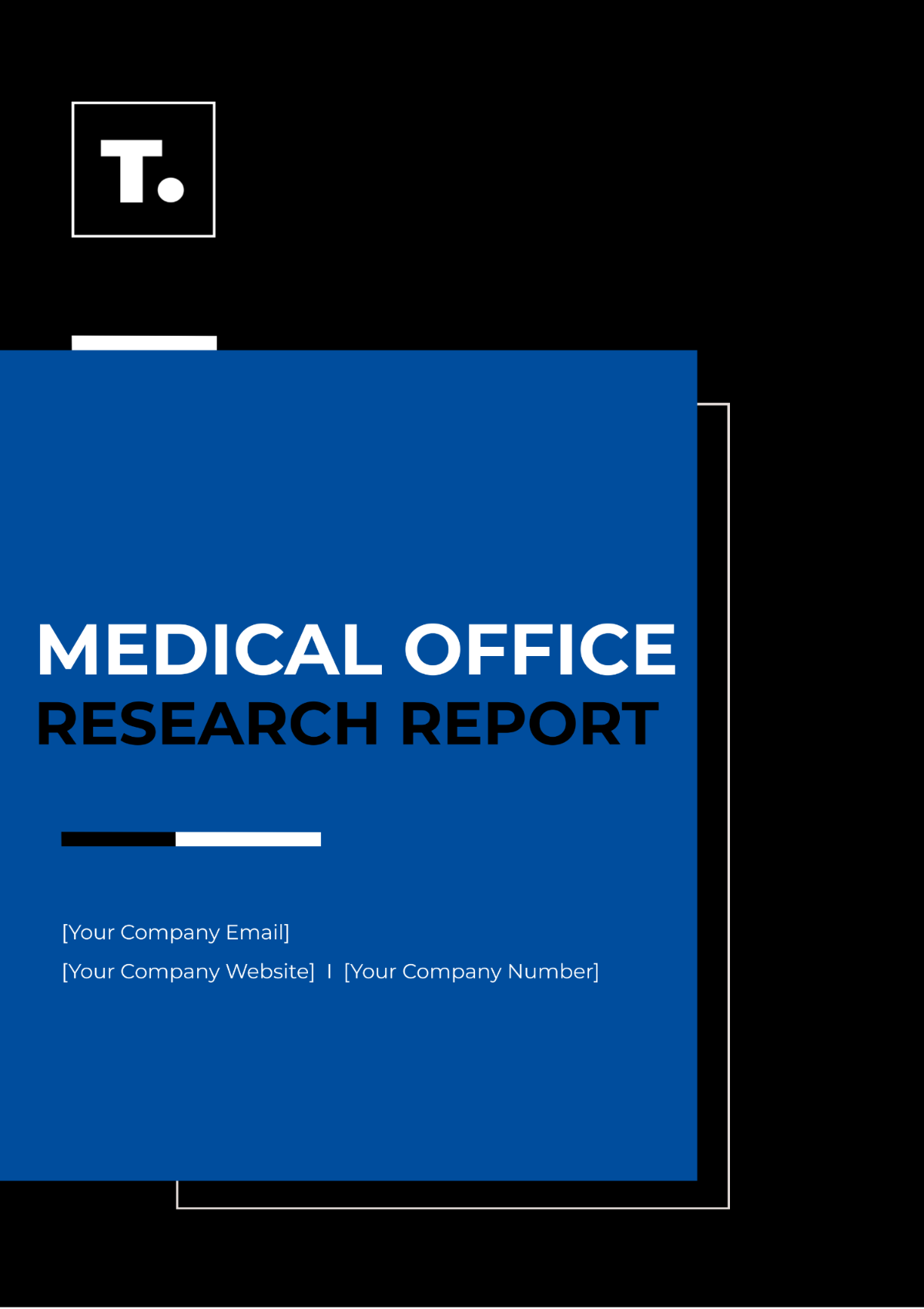
Prepared by: [Your Name]
Company: [Your Company Name]
Date: [Date]
I. Overview
Study Title: Impact of Telehealth Services on Patient Outcomes in Chronic Disease Management
Institution: Global Health Medical Center
Study Duration: January 2050 - December 2050
II. Objective
The primary objective of this study was to evaluate the effectiveness of telehealth services in improving patient outcomes for individuals with chronic diseases such as hypertension, diabetes, and heart disease.
III. Methodology
The study employed a mixed-methods approach, combining quantitative and qualitative data collection techniques to ensure comprehensive analysis. A total of 500 patients with chronic conditions were recruited from the Global Health Medical Center's patient population. Participants were divided into two groups: one receiving traditional in-person care and the other receiving telehealth services.
Quantitative data were collected through electronic health records, monitoring key health indicators such as blood pressure, blood glucose levels, and cholesterol levels over the study period. These indicators were measured at baseline and at six-month intervals.
Qualitative data were gathered through structured interviews and surveys with patients and healthcare providers. These interviews aimed to capture patient satisfaction, perceived quality of care, and any challenges faced during telehealth consultations.
Data analysis involved comparing health outcomes between the two groups using statistical methods. Patient satisfaction and qualitative feedback were analyzed thematically to identify common trends and insights.
IV. Results
Outcome | Telehealth Group | In-Person Group |
|---|---|---|
Blood Pressure Control | 65% achieving targets | 50% achieving targets |
Blood Glucose Levels | Average decrease of 1.5% | Average decrease of 0.8% |
Cholesterol Levels | Improvement in 70% | Improvement in 55% |
Patient Satisfaction | 85% highly satisfied | 78% satisfied |
Provider Feedback | Positive on efficiency | Challenges with scheduling and travel |
V. Discussion
The study demonstrates that telehealth services can significantly improve health outcomes for patients with chronic diseases. The convenience and accessibility of telehealth have led to higher patient satisfaction and adherence to treatment plans. Healthcare providers have found telehealth to be efficient for routine management, although some challenges with technology adoption were noted.
The findings suggest that telehealth can be a valuable complement to traditional in-person care, especially for chronic disease management. Future studies could explore the long-term impacts of telehealth and its effectiveness in other medical conditions.
VI. Conclusion
Telehealth services have the potential to transform chronic disease management by improving health outcomes and patient satisfaction. As healthcare continues to evolve, integrating telehealth into standard practice can enhance the quality of care provided to patients.
VII. Recommendations
Expand telehealth services to include more comprehensive training for healthcare providers.
Conduct further research on the long-term effects of telehealth in chronic disease management.
Explore telehealth applications in other medical specialties and conditions.
VIII. Appendices
Appendix A: Detailed Statistical Analysis
Appendix B: Patient Satisfaction Survey
Appendix C: Provider Feedback Questionnaire
- 100% Customizable, free editor
- Access 1 Million+ Templates, photo’s & graphics
- Download or share as a template
- Click and replace photos, graphics, text, backgrounds
- Resize, crop, AI write & more
- Access advanced editor
Upgrade your medical research documentation with the Medical Office Research Report Template offered by Template.net. This customizable and downloadable template provides a detailed format for recording research findings, methodologies, and conclusions. Printable for convenience, it can be tailored to specific research needs using our AI Editor Tool.
You may also like
- Sales Report
- Daily Report
- Project Report
- Business Report
- Weekly Report
- Incident Report
- Annual Report
- Report Layout
- Report Design
- Progress Report
- Marketing Report
- Company Report
- Monthly Report
- Audit Report
- Status Report
- School Report
- Reports Hr
- Management Report
- Project Status Report
- Handover Report
- Health And Safety Report
- Restaurant Report
- Construction Report
- Research Report
- Evaluation Report
- Investigation Report
- Employee Report
- Advertising Report
- Weekly Status Report
- Project Management Report
- Finance Report
- Service Report
- Technical Report
- Meeting Report
- Quarterly Report
- Inspection Report
- Medical Report
- Test Report
- Summary Report
- Inventory Report
- Valuation Report
- Operations Report
- Payroll Report
- Training Report
- Job Report
- Case Report
- Performance Report
- Board Report
- Internal Audit Report
- Student Report
- Monthly Management Report
- Small Business Report
- Accident Report
- Call Center Report
- Activity Report
- IT and Software Report
- Internship Report
- Visit Report
- Product Report
- Book Report
- Property Report
- Recruitment Report
- University Report
- Event Report
- SEO Report
- Conference Report
- Narrative Report
- Nursing Home Report
- Preschool Report
- Call Report
- Customer Report
- Employee Incident Report
- Accomplishment Report
- Social Media Report
- Work From Home Report
- Security Report
- Damage Report
- Quality Report
- Internal Report
- Nurse Report
- Real Estate Report
- Hotel Report
- Equipment Report
- Credit Report
- Field Report
- Non Profit Report
- Maintenance Report
- News Report
- Survey Report
- Executive Report
- Law Firm Report
- Advertising Agency Report
- Interior Design Report
- Travel Agency Report
- Stock Report
- Salon Report
- Bug Report
- Workplace Report
- Action Report
- Investor Report
- Cleaning Services Report
- Consulting Report
- Freelancer Report
- Site Visit Report
- Trip Report
- Classroom Observation Report
- Vehicle Report
- Final Report
- Software Report
